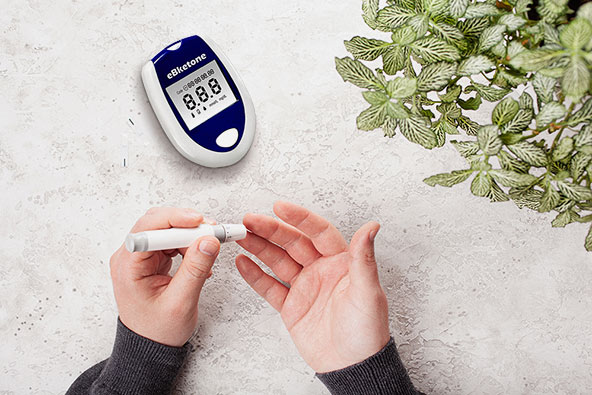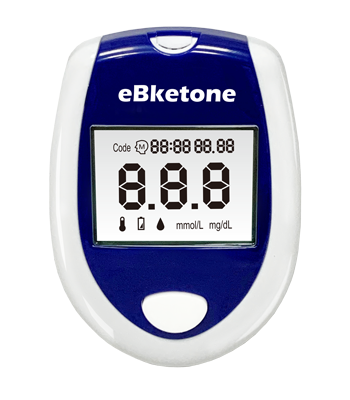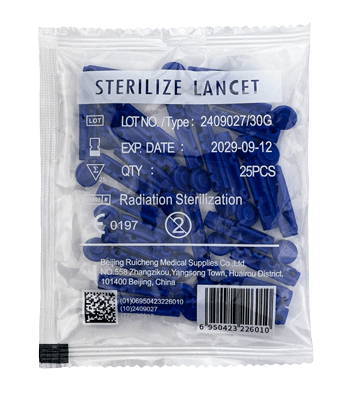The fact that the body is in ketosis means that it uses ketones as fuel instead of glucose. Ketones are produced when the body breaks down fat, and this usually occurs when glucose availability is low, such as on a low-carb diet or fasting. In ketosis, fat becomes the main source of energy for the body's functions.
There are a number of different reasons for putting the body in ketosis, one of the most common is that you want to lose weight. But there are many more reasons. A ketogenic diet focuses on foods that provide healthy fats, adequate amounts of protein, and very few carbohydrates.
The goal is to get more calories from fat than from carbohydrates. However, you don't feast on fat or protein. The concept works by reducing the body's sugar reserves. It causes the body to start using fat for energy instead. When fat is used for energy, ketones are created, which the body and brain use as fuel. When the body burns fat, it can lead to weight loss.
There are several different types of ketogenic diets, such as a regular ketogenic diet or a cyclical ketogenic diet, such as semi-fasting or 5:2. Below we mention some of the benefits of a ketogenic diet.


Supports weight loss
A ketogenic diet can help promote weight loss in several ways, e.g. by increasing metabolism and reducing food cravings and hunger, (which is hormonally controlled). For those who want to control their weight or lose weight, there are several studies that show that a ketogenic diet is more effective than a low-fat diet.
In a large review of 13 different randomized controlled studies, researchers found that people who followed a ketogenic diet lost more weight than those who followed a low-fat diet over a one-year period. (1)
Lowers blood sugar
Because a ketogenic diet lowers blood sugar levels, it may also reduce the risk of insulin-related problems. Insulin is a hormone that regulates blood sugar. A low-carbohydrate, high-fat diet, such as the ketogenic diet, can help stabilize blood sugar and thereby reduce the stress on insulin. Therefore, it can also reduce the risk of insulin complications. (2)


Heart and cholesterol
A review of studies (2017) that included both animals and humans following a ketogenic diet found that some people experienced a noticeable reduction in total cholesterol, LDL cholesterol (often called “bad” cholesterol. (4) The difference is that LDL transports cholesterol out of the blood and HDL removes the excess.
Cholesterol is used among other things to repair the vessel walls. However, high levels of oxidized cholesterol can increase the risk of cardiovascular disease. The conclusion is that the positive effects on heart health are mainly due to the quality of the diet. Therefore, it is important to eat a healthy, nutritionally balanced diet while following a ketogenic diet. Feedback
May protect brain function
Some studies, such as a 2019 review (5), suggest that ketones generated during a ketogenic diet may provide neuroprotective benefits, meaning they can strengthen and protect the brain and nerve cells. Many researchers and physicians in functional medicine have looked at this, where there is a lot of literature available focusing on the impact of diet on brain functions.


Few carbohydrates
As mentioned earlier, a ketogenic diet severely limits the intake of carbohydrates. However, some carbohydrates provide health benefits, such as micronutrients and fiber. Fibrous carbohydrates are important for the gut and satiety. They help keep you full and can be good for your stomach. Choose vegetables, berries and fruit with a low glycemic index and which can contain both good fats and proteins.
The glycemic index (GI) of foods, including fruits, is measured by comparing how quickly the food's carbohydrates affect blood sugar compared to pure glucose or white bread. GI is measured on a scale from 0 to 100, where higher values mean a faster rise in blood sugar.
Are there risks with a ketogenic diet?
The ketogenic diet can have a number of health benefits. When you start a ketogenic diet, you may initially feel tired and notice that your blood sugar drops. Some may get headaches and feel sick, before adapting to their new source of energy from fat. The diet is not suitable for those who are pregnant, breastfeeding or those with eating disorders. This also applies to those who have diabetes or kidney and heart problems.
Can you measure ketosis?
If one is in the state of ketosis, it can be measured in different ways. It can be measured in urine, exhaled air and through the blood. With the help of a device, exhaled ketones can be measured from the exhaled air. Urine dipsticks can be used to measure excess ketones in urine. However, they are not always so certain because excretion and excess are measured.


Measuring ketosis in the blood is done using a blood ketone meter, which gives a very accurate measurement. We recommend the eBketone blood ketone meter.
Here you use a disposable lancet to easily and conveniently take a blood sample on yourself.
A small drop of blood is placed on a test stick placed in the blood meter. The test result takes less than 10 seconds to read.
If you have a ketone value of 0.5–1.5 mmol/L, you have very mild ketosis.
If you have values between 1.5 - 3 mmol/L, you are in a good ketogenic metabolism.
If you end up with values up to 5–6 mmol/L, you have starved yourself and need more nutrition and proteins.




